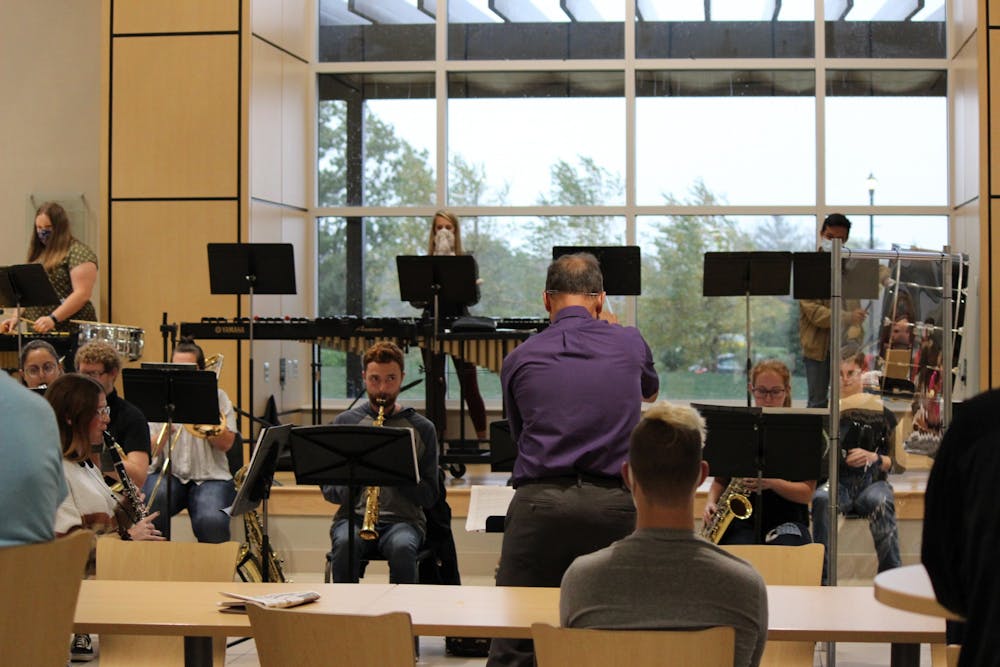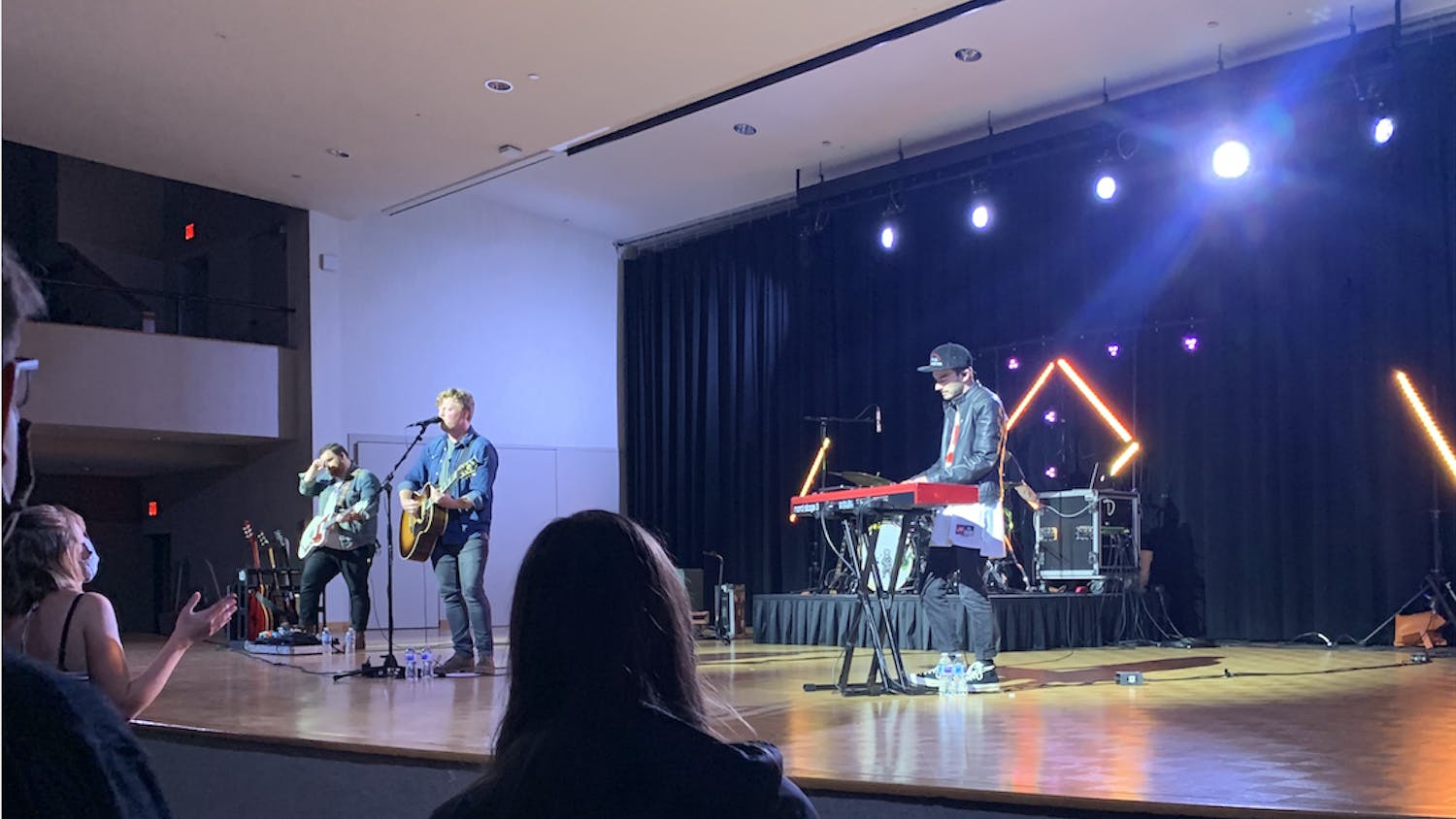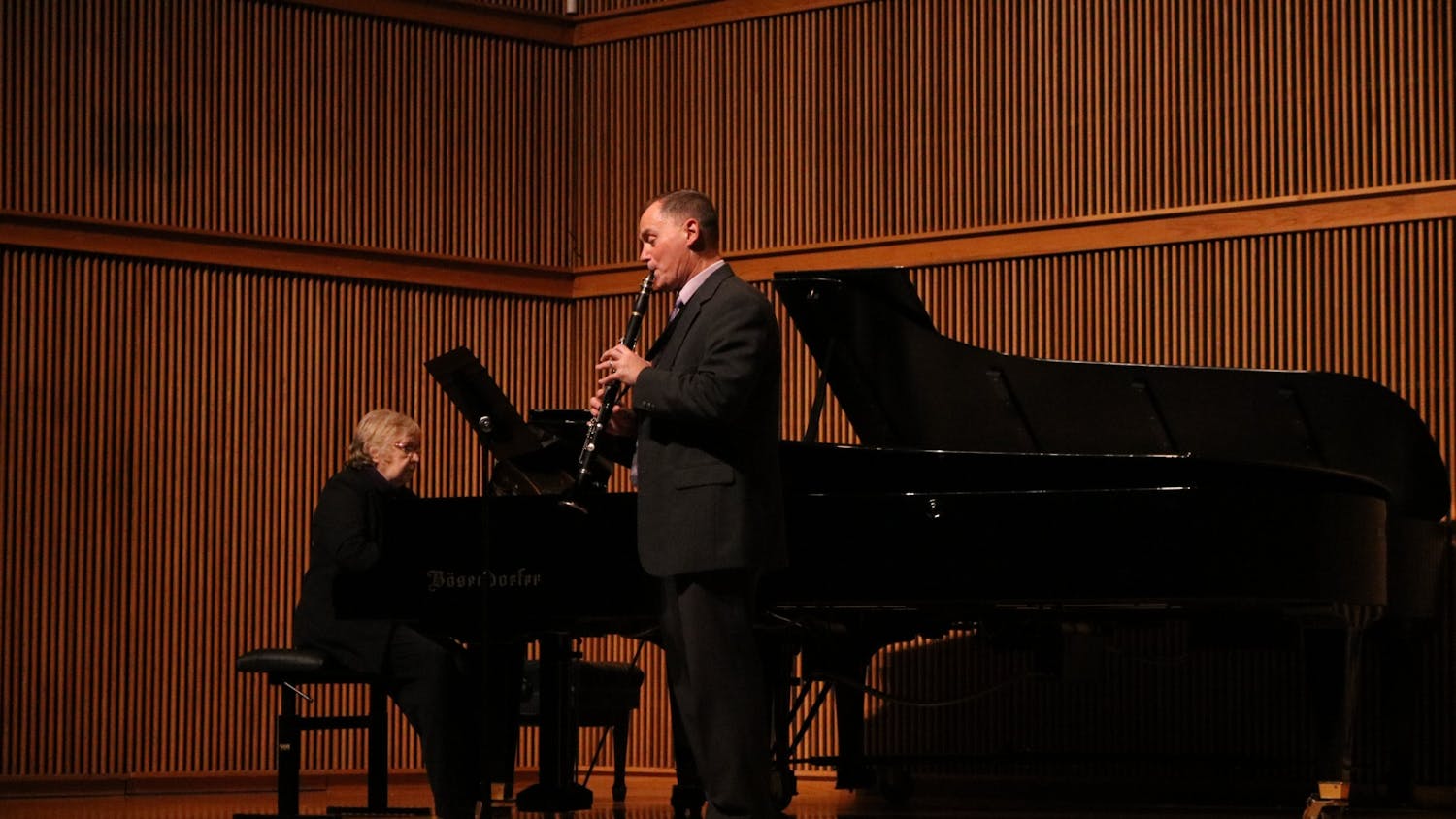The Taylor University Wind Ensemble made its semester debut by performing a fifteen-minute pop-up concert in the LaRita Boren Campus Center.
Christopher Bade, professor of music and director of the Wind Ensemble, led the performance by conducting three pieces: ‘Washington Post March’ and ‘March of the Royal Trumpets’ by John Philip Sousa, and ‘Strange Humors’ by John Mackey.
Amidst the coronavirus pandemic, the Wind Ensemble has done its level best to maintain an environment where students are able to express themselves through their instrument in a low-pressure, welcoming environment.
Freshman and first chair clarinet player Nina Gillespie spoke about the adjustments that the Wind Ensemble has had to make in order to maintain their weekly practices.
“All of our chairs are spread apart,” Gillespie said. “Usually we would have two people on one stand sharing music and the band set up would be in an arch. Now with COVID, we are spread out and nobody shares a stand or music.”
While performing in the pop-up concert Oct. 12, the players remained 6 ft. apart and in straight lines.
Bade referenced research that surfaced in Europe regarding small droplets in the air, called aerosols, and its effects. According to this research, when bands play their instruments the minute little particles float around in the air and can stay floating around in the air for a long period of time depending on the air circulation. Bade explained that a similar study was conducted in America and reached the same conclusion, just with a lesser severity.
Basing his social distancing precautions off of this research, Bade set up his practice rooms with chairs being 6to 9 ft. apart. Additionally, Bade had to take extra precautions for flute players.
“Wind players are OK, but not flutes,” Bade explained. “Part of their air doesn’t go into the instrument, it goes out. So, I have to put barriers around the flute players.”
Bade also touched on logistics regarding the reality of student practices and the pop-up concert as far as the new setup and the negative aspects that it has on the way that students play their instruments and read their music.
“When you sit next to somebody it’s way more fun, and string players have both hands going so when they have to turn a page, it’s brutal for them to stop playing, turn the page and then get back into playing position,” Bade explained.
Although social distancing precautions have tampered with the dynamic of the Wind Ensemble, both the players and the director remain in good spirits.
“I can’t imagine being in school without having band,” Gillespie said. “In a time where nothing is normal because of COVID-19 and the transition to college, band is the only other constant in my life besides God.”
In addition to the positivity of the students involved in Wind Ensemble, Bade reflects on the new territory that the pandemic has brought into the environment of the Wind Ensemble, specifically referencing the pop-up concert.
“We would have been reluctant to do what we did the other day, from the standpoint of ‘Here’s something we’re going to do and it’s only going to be 15 minutes long and we are only going to tell our friends, and hopefully it will gain word of mouth,’” said Bade.
Bade stresses the idea that prior to the pandemic, he would have had to reserve the space, get maintenance to set up their space, get a PA to oversee it, and hand out programs. The pandemic has allowed the Wind Ensemble to put on performances like the pop-up concert that are more spontaneous and easily allow Taylor students to enjoy their music.
Conclusively, Bade emphasizes that he is simply grateful for the Wind Ensemble to not only perform in pop-up concerts, but to play instruments with one another amidst a world that is full of such uncertainty.
“I am grateful that the students here understand that playing music is fun and that there is a certain level of excellence that they should expect, but what they really get is that we’re making music because God’s given them a talent, and that we should glorify Him through this talent,” Bade said. “That part has actually been accentuated during this time.”





